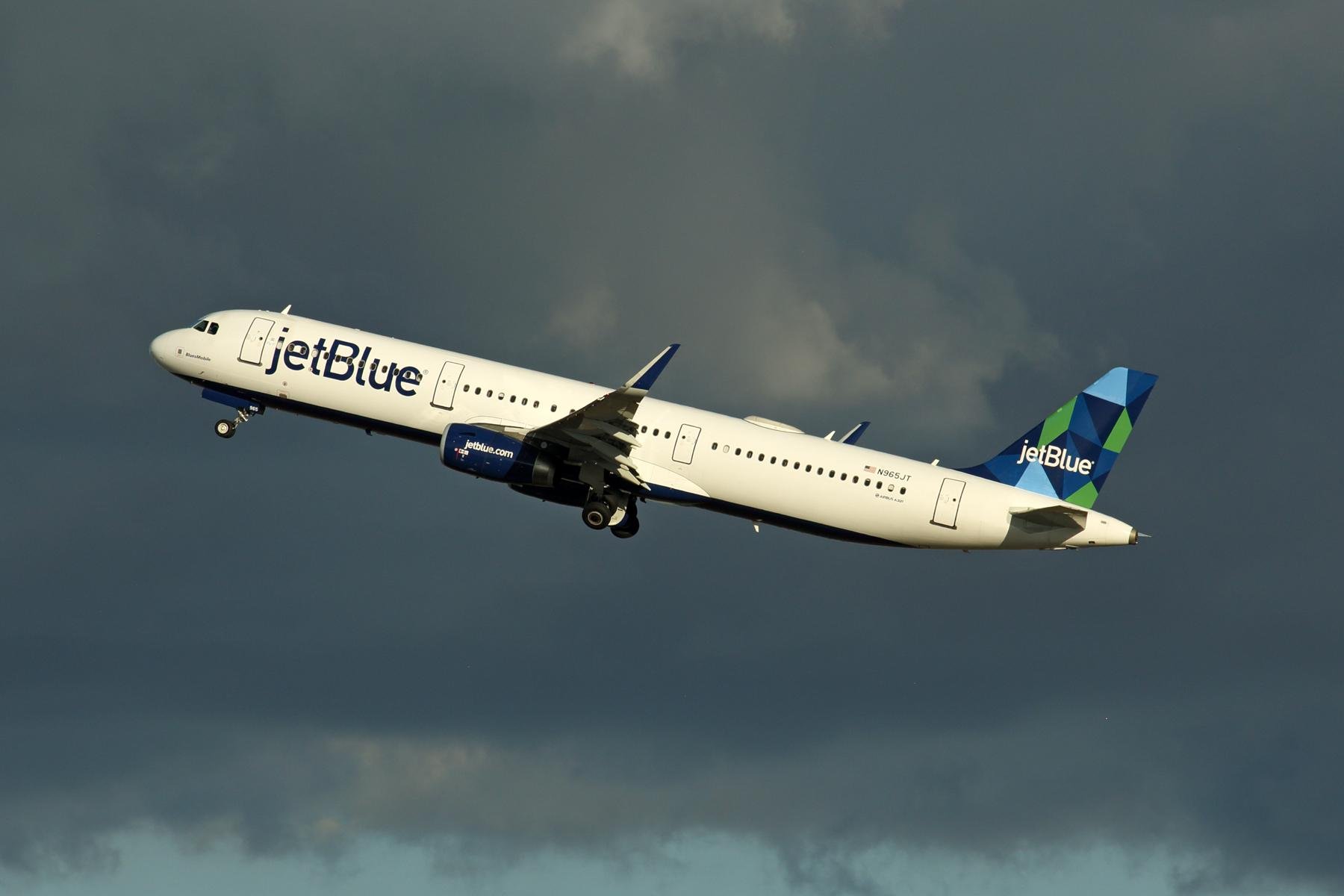
WASHINGTON—As the airline industry reshapes itself in response to the novel coronavirus pandemic, carriers will need less-restrictive fare options to help convince passengers that they can buy and have some recourse if they cannot fly because of illnesses, JetBlue CEO Robin Hayes said.
“I think airlines are going to have to think about how they monetize their fare structure, how they create products that give people the ability to change flights more easily than perhaps they felt in the past they could,” Hayes said during a Washington Post webinar. “It’s not ever going to be really acceptable for someone who is unwell to feel that they’ve been made to fly.”
Change fees linked to heavily restricted fares are one of many ancillary revenue streams that most airlines tapped into during the decade after the Great Recession. While a few, notably Southwest Airlines, still don’t charge them, others ratcheted up fees for passenger-initiated changes to $200 or more per ticket. Now that policies are being put in place that discourage ill passengers from flying, or in some cases preventing them from flying if they don’t pass health screenings, the change fees present a new dilemma.
All carriers agree that the main driver for near-term demand will be passenger confidence. While much of this focuses on the flight process—traveling through airports, waiting in lines, and sitting in airplane cabins for prolonged periods—Hayes’s comment suggests that airlines must consider the traveler’s journey as starting with the ticket purchase, not the trip to the airport.
While ticket restrictions may play a role, building confidence in the travel process’s safety has to be the primary focus.
“It’s a layered approach. There’s not one single thing that you can do that is the silver bullet here, but it’s a number of things that work together to create a sense that flying really is as safe as anything else you would do when you leave your house,” he said.
JetBlue is blocking out about 40% of its seats through early July—a practice that Hayes acknowledges is not sustainable long-term. It was also the first airline to require masks for boarding. Enforcing the mask requirement once onboard presents a challenge for cabin crew, so JetBlue’s answer has been training.
“Our inflight crew members are amazing at persuading people to do things that they don’t want to do,” Hayes said. “We train them in how to manage conflict. We call it the ABCs—ask, bargain, and convince. And again, when we go through that, most customers [will] wear the mask.”
JetBlue has not had a non-compliant passenger, Hayes said. Should it happen, he suggested that the cabin crew will not be expected to ensure the policy is enforced, but the passenger could be banned from future travel.
“We’re going to have to review whether we want that person to fly JetBlue again,” Hayes said. “The safety of our customers and crewmembers is paramount. This is the new flying etiquette, at least until there’s a different solution to this.”
Turning to demand, Hayes offered similar glimmers of hope as other U.S. airline executives in recent days. Mid-April appears to have been the bottom from a traffic standpoint, and forward bookings are slowly trending upward, with leisure demand leading the way.
“We’re back up to about 10-11%” of comparable 2019 traffic, compared to 3-4% six weeks ago, Hayes said. “You’re definitely seeing a little bit of an uptick but, again, nowhere near where we were.”
JetBlue flew 10-15% of what Hayes called its “normal” schedule in May and plans to increase to about 25% in June.
“We’re assuming it’s going to be an L-shaped recovery,” he said. “We’re planning conservatively for that, and it’s going to be, I think, a significant period of time before revenues are back.”
Hayes also reiterated that JetBlue’s plans to serve London from both New York and Boston in 2021 are still in the cards, though the routes will probably start “a few months later” then planned. The carrier confirmed its long-rumored London launch in April 2019, but has never said when the flights would start, nor which London airport they would serve. JetBlue plans to use Airbus A321LRs on the routes and is slated to receive its first five next year.
The carrier remains convinced that the transatlantic market will be ripe for its services once the pandemic’s headwinds subside.
“We actually think that the U.S.-to-Europe market will be quite strong in the second half of next year,” Hayes said. “We think that it’s probably going to take about a year for that market to recover.”





